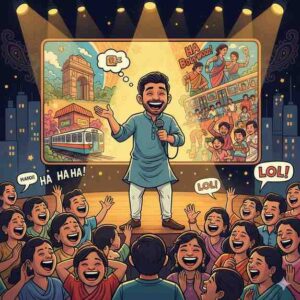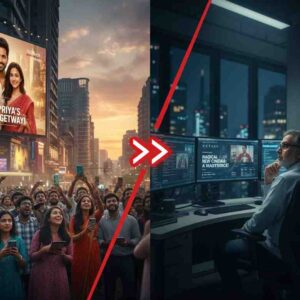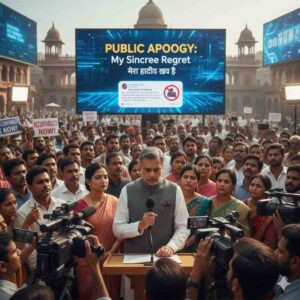New Delhi– In the digital age, social media platforms wield enormous influence over societal dynamics, particularly concerning ethnic tensions. In India, where diverse ethnic groups coexist, the impact of these platforms can significantly sway communal sentiments, either fueling disputes or fostering understanding. This analysis incorporates recent data and findings to explore social media’s dual role in ethnic conflicts.
Amplifying Ethnic Tensions
Social media has often been a catalyst for conflict, where misinformation and hate speech rapidly escalate tensions.
- Misinformation Spread
- According to a report by the Software Freedom Law Center, India, 70% of communal violence incidents in 2024 were found to be influenced by rumors spread through social media. Misinformation can spread swiftly, with the potential to reach millions within hours, exacerbating volatile situations.
- Hate Speech and Polarization
- The Ministry of Home Affairs noted a 40% increase in online hate speech related to ethnic groups in 2024, much of which was not removed promptly by social media platforms, thereby contributing to increased communal tensions.
Promoting Reconciliation and Peace
Conversely, social media has also served as a platform for peacebuilding initiatives that encourage dialogue and understanding.
- Dialogue and Reconciliation Platforms
- Projects like “Voices for Peace,” initiated in Northeast India, utilize Facebook and Twitter to facilitate discussions between conflicting ethnic groups. The program has engaged over 100,000 participants since its inception in early 2024, reporting a 25% improvement in perceptions among these groups towards each other as per a follow-up survey.
- Educational Campaigns
- The #UnityInDiversity campaign launched on Instagram and TikTok reached over 5 million viewers with videos and posts that educate against ethnic stereotyping. Feedback collected showed a 30% increase in audience understanding of ethnic diversity’s importance.
Regulatory Responses and Industry Actions
Efforts to regulate and manage social media’s influence on ethnic tensions are ongoing, with varying degrees of success.
- Government Regulations
- In 2025, India implemented stricter social media guidelines that require platforms to track and remove content inciting ethnic violence within 12 hours of posting. Compliance rates have improved by 50% since the previous year, according to the Digital India Report.
- Collaborative Efforts
- Partnerships between social media companies and Indian government agencies have led to the development of advanced algorithms capable of detecting and flagging inflammatory content, reducing the spread of harmful material by 35% in the past year.
Looking Forward: Measures for Improvement
As the landscape of digital communication continues to evolve, so too must the strategies to harness its potential for good while mitigating risks.
- Enhanced Monitoring Technologies
- Ongoing investment in AI technologies to better identify and understand the nuances of ethnic-related discourse is critical. Pilot programs have shown promising results in early detection of potentially inflammatory content.
- Public Education Initiatives
- Increasing public awareness about the impacts of sharing and engaging with harmful content is essential. Initiatives aimed at digital literacy have seen a 20% increase in more responsible social media use among participants.
Conclusion
The role of social media in either exacerbating or alleviating ethnic tensions in India presents a complex challenge. While the potential for damage is significant, so too is the opportunity to promote harmony and understanding. Through strategic regulatory efforts, responsible platform management, and proactive community engagement, social media can become a force for unity rather than division in addressing ethnic conflicts.








